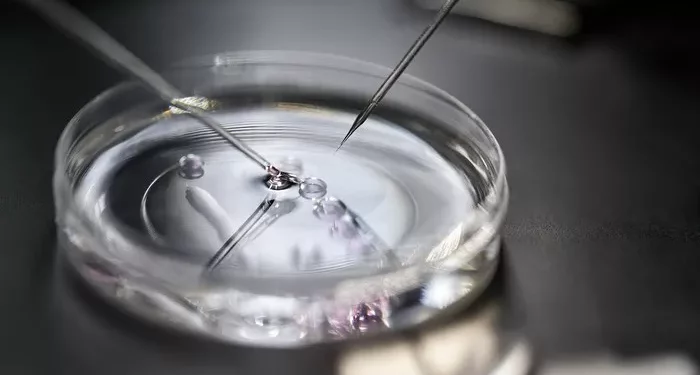Understanding the potential for pregnancy outside the typical fertile window is a common concern for many individuals. The timing of intercourse in relation to the menstrual cycle can influence the likelihood of conception. This article delves into the question of whether it is possible to get pregnant after your period, examining the menstrual cycle, ovulation, and factors that may affect fertility.
Introduction to the Menstrual Cycle
1. Overview of the Menstrual Cycle
The menstrual cycle is a complex physiological process that prepares the female body for potential pregnancy. It typically lasts about 28 days, though variations are common. The cycle is divided into several phases, including the menstrual phase, follicular phase, ovulation, and luteal phase.
2. Menstrual Phase
The menstrual phase marks the beginning of the cycle and involves the shedding of the uterine lining. This phase usually lasts between three to seven days. Menstrual bleeding occurs as a result of the decreased levels of hormones like estrogen and progesterone, which signal the end of the previous cycle and the start of a new one.
3. Follicular Phase
Following menstruation, the follicular phase begins. This phase is characterized by the development of ovarian follicles, each containing an immature egg. The follicles produce estrogen, which helps to thicken the uterine lining and prepare it for a potential pregnancy.
Possibility of Pregnancy After Your Period
1. Timing of Ovulation
Ovulation is the release of a mature egg from the ovary, typically occurring around the midpoint of the menstrual cycle. For a standard 28-day cycle, ovulation generally occurs around day 14. However, cycles can vary in length, and ovulation may occur earlier or later than this midpoint.
2. Fertile Window
The fertile window encompasses the days leading up to and including ovulation. Sperm can survive in the female reproductive tract for up to five days, making it possible for intercourse occurring several days before ovulation to result in pregnancy. The egg itself is viable for fertilization for about 12 to 24 hours after ovulation.
3. Pregnancy Possibility Immediately After Menstruation
Pregnancy immediately following menstruation is possible, though less common. The likelihood depends on the length of the menstrual cycle and timing of ovulation. In a shorter cycle, ovulation may occur soon after the period ends. Consequently, if intercourse occurs towards the end of menstruation or shortly thereafter, sperm could still be present when ovulation occurs, potentially leading to pregnancy.
Factors Affecting Conception Timing
1. Cycle Length Variability
Individuals with shorter menstrual cycles may experience ovulation soon after the end of menstruation. For example, in a 21-day cycle, ovulation might occur around day 7. If menstruation lasts for seven days, the fertile window could begin soon after bleeding stops, increasing the possibility of conception from intercourse immediately after the period.
2. Hormonal Fluctuations
Hormonal variations can influence the timing of ovulation. Factors such as stress, illness, or significant lifestyle changes may disrupt the regular cycle, potentially causing ovulation to occur earlier or later than expected. These variations can impact the probability of conception following menstruation.
3. Individual Reproductive Health
Reproductive health conditions, such as polycystic ovary syndrome (PCOS) or thyroid disorders, can affect the regularity of the menstrual cycle and ovulation. Individuals with such conditions may have irregular cycles, making it more challenging to predict the timing of ovulation and thus impacting the likelihood of pregnancy after menstruation.
Understanding the Fertility Window
1. Ovulation Prediction Methods
Ovulation prediction methods can help identify the most fertile days within the cycle. Ovulation predictor kits (OPKs) detect the surge in luteinizing hormone (LH) that precedes ovulation. Monitoring basal body temperature (BBT) or cervical mucus changes can also provide insights into ovulation timing, though these methods do not pinpoint the exact timing of ovulation down to the hour.
2. Tracking Menstrual Cycles
Maintaining a detailed record of menstrual cycles and symptoms can help in understanding individual patterns of ovulation and fertility. This information can be valuable in predicting the likelihood of conception following menstruation and optimizing the timing of intercourse.
see also: How Much Does In Vitro Fertilization Cost in the United States?
Professional Guidance and Considerations
1. Consulting a Fertility Specialist
For individuals experiencing difficulties with conception or those with irregular menstrual cycles, consulting a fertility specialist may be beneficial. A specialist can provide a thorough evaluation, recommend appropriate diagnostic tests, and offer personalized advice to improve the chances of conception.
2. Exploring Fertility Treatments
In cases where natural conception is challenging, fertility treatments and assisted reproductive technologies (ART) may be considered. Treatments such as ovulation induction, intrauterine insemination (IUI), or in vitro fertilization (IVF) can assist individuals in achieving pregnancy, regardless of the timing of intercourse.
Conclusion
In summary, while the possibility of getting pregnant immediately after menstruation is lower compared to other times in the menstrual cycle, it is not impossible. The likelihood depends on individual cycle length, the timing of ovulation, and overall reproductive health. Understanding the menstrual cycle and using ovulation prediction methods can help individuals better assess their fertility window and optimize their chances of conception.
Maintaining a detailed record of menstrual cycles, tracking ovulation, and seeking professional guidance if needed can provide valuable insights and support in the journey towards pregnancy. By addressing factors that influence fertility and timing, individuals can make informed decisions and enhance their chances of successful conception.
Related topics:



























